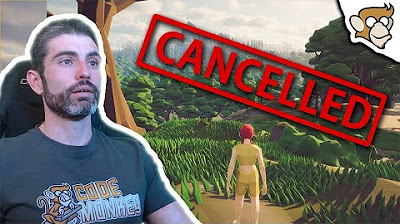4 CRITICAL LESSONS I've Learned (After 10 Years Of Making Indie Games)
Summary
TLDRIn this video, an experienced indie game developer shares critical lessons learned over a decade in game development. Key points include proving the first 15 minutes of your game by testing with players, expanding only on content that is proven, and focusing development efforts on the bookends—the start and end of the game. The developer also emphasizes the importance of incentivizing streamers and YouTubers by involving them in the game, potentially boosting exposure. These tips aim to help developers create successful games while efficiently managing time and resources.
Takeaways
- 😀 Prove the first 15 minutes of your game: Ensure the initial 15 minutes are engaging and enjoyable for players before proceeding with further development.
- 😊 Players should smile: Even if your game is spooky or serious, aim to make players smile during gameplay.
- ⏱ Keep it condensed: Ensure the first 15 minutes of gameplay don't drag on, keeping them tight and engaging.
- 🧪 Test with a small audience: Use a small group of testers to validate your initial gameplay before expanding the game.
- 📈 Expand proven content: After validating the first 15 minutes, focus on expanding this proven section instead of untested content.
- 📚 Focus on the bookends: Invest in both the beginning and the end of the game to create a strong start and a satisfying conclusion for players.
- 🏗 Avoid overworking the middle: Players are more forgiving of a grind in the middle of a game, so prioritize other parts first.
- 🎯 Incentivize streamers: Target 200 streamers or YouTubers to showcase your game and drive awareness during the launch phase.
- 📩 Personalize outreach: Engage streamers by asking for their advice and including them in the game in creative ways, like Easter eggs or special features.
- 📦 Provide all necessary assets: When reaching out to streamers, include everything they need to promote your game, such as a press kit, gameplay keys, and trailers.
Q & A
What is the first critical lesson the speaker emphasizes for game development?
-The first critical lesson is to prove the first 15 minutes of your game. This means ensuring that the first 15 minutes are engaging and fun by testing them with a small group of players or friends to confirm that the game is enjoyable before investing more time and energy.
Why does the speaker focus on proving just 15 minutes of gameplay?
-The speaker emphasizes proving 15 minutes of gameplay to avoid wasting time and resources on a game that isn't fun or engaging. By perfecting this short segment, developers can ensure that the core experience is solid before expanding the game further.
What are the two signs that the first 15 minutes of gameplay are proven?
-The first sign is players smiling or enjoying themselves during gameplay. The second sign is that the 15 minutes don't feel artificially extended; it should take only as long as intended, ensuring the experience remains tight and engaging.
What does the speaker suggest after the first 15 minutes of gameplay are proven?
-After proving the first 15 minutes, the speaker suggests expanding only on what has been proven. Developers should avoid creating more untested content and instead build upon the already tested, fun experience.
What mistake does the speaker warn against in game development?
-The speaker warns against expanding a game without proving the core experience first. This can lead to wasted time and effort, as unproven concepts might not be fun, leading to a weaker overall game.
Where does the speaker recommend focusing when expanding a game after proving the first 15 minutes?
-The speaker recommends focusing on the 'bookends' of the game, which refers to the beginning and the end. Ensuring that players are hooked at the start and feel rewarded by the end helps create a satisfying experience.
Why is focusing on the middle of the game less critical according to the speaker?
-The speaker believes that the middle of the game can often be a grind for players, and as long as the beginning and end are strong, players are more likely to push through the middle. Indie developers, especially with limited budgets, should prioritize their resources on the start and end.
What does the speaker mean by 'incentivizing 200 giants' in the game launch process?
-Incentivizing 200 giants refers to reaching out to high-caliber YouTubers, streamers, or influencers to promote the game. The speaker suggests incentivizing them by asking for their feedback and possibly featuring them in the game to encourage them to showcase it.
How can developers incentivize streamers or YouTubers to play their game?
-Developers can incentivize streamers by asking for their feedback and featuring their likeness or memes in the game. Additionally, showing them a cheat code that adds them into the game and giving them all necessary assets upfront can help get them invested.
Why is it important to provide streamers with all the necessary assets upfront?
-Providing streamers with all the assets upfront, such as game trailers, press kits, and a cheat code to see themselves in the game, saves time and increases the likelihood of them playing and promoting the game without back-and-forth communication delays.
Outlines

This section is available to paid users only. Please upgrade to access this part.
Upgrade NowMindmap

This section is available to paid users only. Please upgrade to access this part.
Upgrade NowKeywords

This section is available to paid users only. Please upgrade to access this part.
Upgrade NowHighlights

This section is available to paid users only. Please upgrade to access this part.
Upgrade NowTranscripts

This section is available to paid users only. Please upgrade to access this part.
Upgrade Now5.0 / 5 (0 votes)





